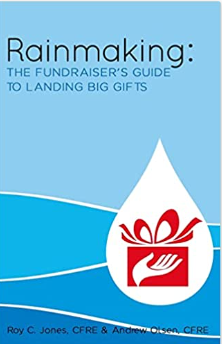As I boarded a plane a few years ago from Los Angeles, I was going through my routine… stowing my lap top under the seat in front of me, neatly folding my jacket in the overhead bin, and most importantly, putting on my headset and dialing in my Ipod with my favorite blues artists for 4 hours music for the ride home… when suddenly I heard a familiar voice across the aisle, “Hey, how are you doing?”
It was Rusty, a former co-worker of mine, who had always been our top producing major gift officer. He had one of those deep voices you never forget and was nearly 6’5″ tall and nearly 300 pounds. This was a big man, who even by today’s standard could have gone toe to toe with almost anybody in the NFL.
It always blew my mind that Big Rusty could show up at a stranger’s door and before you know it, not only would he be invited in, but he usually left with a donation for the nonprofit organization we worked for. This big, mountain-of-a-man, succeeded because his heart was bigger than his stature.
As we chitchatted about old friends and family, I finally asked him why he was in Los Angeles. Of course, the answer did not surprise me. One of his “friends” had been in an accident and broken his hip and Rusty was headed there to spend a few weeks with him to help out around the house while he recuperated. When he told me the man’s name, I knew that it was one of his assigned major donors.
It struck me that Rusty did not call him “his donor” or “his prospect” or “his assignment”… It truly was his friend. When Rusty told me the man’s name, I recognized it immediately. He had already donated to the ministry a 7-figure gift and I knew that Rusty had helped him many years ago with his planned giving too.
Knowing Rusty and the donor, it did NOT strike me odd at all that instead of calling family or hiring a convalescent nurse, this donor simply called his friend Rusty. He trusted Rusty. He was a man who began their relationship as his “donation advisor”. Rusty was the man’s eyes and ears inside the ministry. When he made a gift, regardless of the amount, Rusty reported how every penny was spent. This dear man not only trusted Rusty with his money, now he truly trusted him with his life.
There are five qualities that I find successful major gift officers have in common. I like to call them “Rusty’s Rules” because he epitomized them so well:
1. THE BEST FUNDRAISERS KNOW THAT RELATIONSHIPS ARE NEVER ABOUT THE MONEY. Success major gift officers make sure the relationships they build are never about the money. It may sound counter-intuitive, but if you want to receive large sums of money from people for your charity, your relationships should NOT be based upon the money. Your donor has to believe that your friendship is not about the money. It is just that simple.
2. SUCCESSFUL FUNDRAISERS KNOW THAT FRIENDS (not donors) WRITE THE BIGGEST CHECKS TO THEIR CHARITY. A great fundraiser knows that what they are first and foremost is a “friendraiser”. They make it a priority to build friendships. Successful major gift officers are great a making friends with others. I remember meeting with donors and prospects for lunch and simply asking the question, “What are your plans today?” The next thing I knew I was taking Mrs. Smith to the grocery store or taking Mr. Johnson to the bank. I remember on two or three occasions visiting a friend in the hospital, fixing door hinge, rehanging a photo, and even, cutting the grass. (Of course, with my lagging mechanical and carpentry skills, I have to be pretty careful.) I learned this from a co-worker of mine many, many years ago. When I called the major gift officer to check on how his visit went with the donor, a dear older lady answered the phone. She said that “her friend was helping her paint the front porch right now and could he call me back in an hour or so?” Now that is a real friend…
3. GREAT FUNDRAISERS ARE GREAT BUSINESS PARTNERS. Great major gift fundraisers understand that those writing the checks are ultimately their business partners. They know that people do not go into business with person that they do not like or do not trust. They begin every relationship with a specific “end game”… to acquire a new business partner. Transparency, honesty, integrity and advocacy are all critical steps that must be demonstrated incrementally. It takes time and it must be intentional. Once the donor “invests” in your organization or ministry how you recognize, steward and are accountable for each gift has an impact on the size and frequency of the next gift. People invest in places where the see the biggest return for their giving. Great business partners bring value to the relationship!
4. EFFECTIVE FUNDRAISERS ARE THE BUSIEST PEOPLE I KNOW. “Be willing to make decisions. That’s the most important quality in a good leader. Don’t fall victim to what I call the “ready – aim – aim – aim – aim syndrome. You must be willing to fire. ” – T. Boone Pickens
The most effective fundraisers manage their time and contact activity so that they can be in front of the right people at the right time each and every year. The successful major gift fundraiser will meet with three to five donors a week… nearly 150 donors a year. Since major gifts are best procured face-to-face the successful fundraiser spends only 20 percent of their time in research and targeting and 80 percent of their time talking to and visiting with those donors most ready to invest in their cause.
5. FRUITFUL FUNDRAISERS MAKE THE TIME TO LOVE OTHERS. I met with the executive director of a charity in North Carolina a few
years back who undoubtedly has the biggest heart of any man I know. Every meeting begins with a bear hug and hand shake and usually ends with a tear in his eye. It is real. It is not showy or put on. He has more compassion than any man I know. He may have said it best when he told me: “I spend a third of my day loving on those our charity serves, the homeless. I spend a third of my day loving on our staff and volunteers. And I spend a third of my day loving on our donors…” Who are you “loving on” today… make sure you spend time loving and caring for your donors. It is at the heart of every successful major gift fundraiser.




Roy I enjoyed your comments, however I wonder about how far does the friendship extend. Cutting grass and hanging pictures even after a 7 figure gift. I see my job as a friendraiser to ensure that the donors becomes friends to the agency moreso than just friends to me. I want to get them involved and engaged in the affairs of the agency so that if I leave the agency the donor remains. I recall a Board member who had a friend who would give a major gift every year, however the Board member wanted to solicit his friend and never allowed for anyone to really cultivate the relationship so consequently when the Board member left so did the donor. I want to make friends not for me but for my organization
Those are extreme and often only happen with seniors who are older and need the help. However, friendship with major supporters are no different than your friendships with non-donors. Bottom line, they require time spent together and getting to know each other personally.